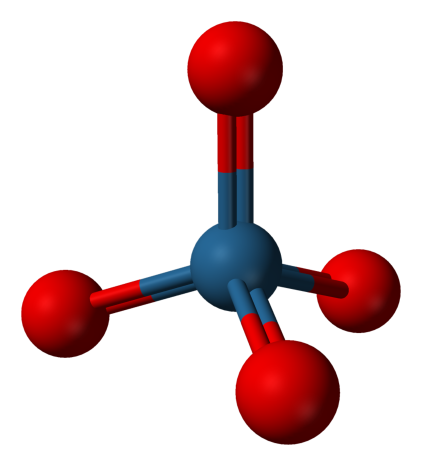PRÉSENTATION
Le département « Interactions et Contrôle Quantiques » (ICQ) comprend deux groupes de théoriciens dont les sujets de recherche se concentrent sur les systèmes quantiques et leurs interactions, incluant la spectroscopie moléculaire et atomique, la dynamique des collisions réactives moléculaires, la spectroscopie métrologique, le contrôle de systèmes quantiques par des champs électromagnétiques, la nano-optique quantique et l’information quantique, la dynamique non-linéaire avec des applications aux fibres optiques. Le travail de ses membres est caractérisé par une approche largement interdisciplinaire, impliquant des collaborations fortes avec des équipes de Mathématiques, de Physique, de Chimie, de Planétologie et d’Astrophysique. Les deux groupes ont un grand nombre de collaborations avec des groupes expérimentaux, tant localement qu’au niveau national et international.
Hans-Rudolf Jauslin
HEAD
Hans.Jauslin@u-bourgogne.fr
Phone : 03 80 39 59 70
Vincent BOUDON
CO-HEAD
Vincent.Boudon@u-bourgogne.fr
Phone : 03 80 39 59 10
MARS

Le groupe MARS a une expertise bien établie dans le domaine de la spectroscopie moléculaire et atomique, ainsi que de la dynamique réactionnelle moléculaire. Le groupe met en avant les applications à la physique atmosphérique et environnementale, l’astrophysique, la planétologie et à la métrologie de haute précision. Il se concentre aussi sur la diffusion de données de spectroscopie moléculaire, en particulier via le consortium européen VAMDC (Virtual Atomic and Molecular Data Centre).
DyTeQ

L’équipe DyTeQ regroupe des physiciens théoriciens et des mathématiciens qui ont pour but de développer des modèles de systèmes quantiques et de processus non-linéaires, d’analyser et de simuler leur dynamique, en particulier leur contrôle par des champs externes. Ces études se basent sur le développement et l’application de méthodes mathématiques en théorie des systèmes dynamiques, géométries différentielle et algébrique, théorie des champs et théorie du contrôle. Ces méthodes sont principalement utilisées dans le domaine des technologiques quantiques, comme l’optique quantique, l’information quantique, les simulations quantiques et le contrôle quantique. De nombreuses collaborations expérimentales permettent d’appliquer ces approches sur des dispositifs aussi variés que la plasmonique quantique, les condensats de Bose-Einstein, la résonance magnétique ou les circuits supraconducteurs.
- kc_data:
- a:7:{s:4:"mode";s:2:"kc";s:3:"css";s:0:"";s:9:"max_width";s:0:"";s:7:"classes";s:0:"";s:9:"thumbnail";s:0:"";s:9:"collapsed";s:0:"";s:9:"optimized";s:0:"";}
- kc_raw_content:
- [kc_row use_container="yes" _id="56939"][kc_column width="12/12" video_mute="no" _id="995333"][kc_spacing height="20px" _id="264766"][/kc_column][/kc_row][kc_row use_container="yes" _id="317083" cols_gap="{`kc-css`:{}}" force="__empty__"][kc_column width="59.86%" _id="709688"][kc_column_text _id="562214"]
PRÉSENTATION
Le département « Interactions et Contrôle Quantiques » (ICQ) comprend deux groupes de théoriciens dont les sujets de recherche se concentrent sur les systèmes quantiques et leurs interactions, incluant la spectroscopie moléculaire et atomique, la dynamique des collisions réactives moléculaires, la spectroscopie métrologique, le contrôle de systèmes quantiques par des champs électromagnétiques, la nano-optique quantique et l’information quantique, la dynamique non-linéaire avec des applications aux fibres optiques. Le travail de ses membres est caractérisé par une approche largement interdisciplinaire, impliquant des collaborations fortes avec des équipes de Mathématiques, de Physique, de Chimie, de Planétologie et d’Astrophysique. Les deux groupes ont un grand nombre de collaborations avec des groupes expérimentaux, tant localement qu’au niveau national et international.
[/kc_column_text][kc_spacing height="40px" _id="263275"][/kc_column][kc_column width="40.12%" _id="502703"][kc_column_text _id="746491"]Hans-Rudolf Jauslin
HEAD
Hans.Jauslin@u-bourgogne.fr
[/kc_column_text][kc_spacing height="40px" _id="183844"][kc_column_text _id="310263"]
Phone : 03 80 39 59 70Vincent BOUDON
CO-HEAD
Vincent.Boudon@u-bourgogne.fr
[/kc_column_text][/kc_column][/kc_row][kc_row _id="230372"][kc_column width="28%" video_mute="no" _id="54887"][kc_call_to_action layout="2" title="MARS" desc="TW9sZWN1bGVzLCBBdG9tcywgUmVhY3Rpdml0eSBhbmQgU2NhdHRlcmluZw==" button_show="__empty__" _id="334018" css_custom="{`kc-css`:{`any`:{`description`:{`color|.kc-cta-desc .kc-cta-text`:`#1e73be`,`text-align|.kc-cta-desc .kc-cta-text`:`center`}}}}"][kc_single_image image_size="full" _id="150567" image_source="media_library" image="42200"][kc_spacing height="40px" _id="78526"][kc_column_text _id="20633"]
Phone : 03 80 39 59 10Le groupe MARS a une expertise bien établie dans le domaine de la spectroscopie moléculaire et atomique, ainsi que de la dynamique réactionnelle moléculaire. Le groupe met en avant les applications à la physique atmosphérique et environnementale, l’astrophysique, la planétologie et à la métrologie de haute précision. Il se concentre aussi sur la diffusion de données de spectroscopie moléculaire, en particulier via le consortium européen VAMDC (Virtual Atomic and Molecular Data Centre).
[/kc_column_text][/kc_column][kc_column width="4%" video_mute="no" _id="359936"][/kc_column][kc_column width="28%" video_mute="no" _id="483435"][kc_call_to_action layout="2" title="DyTeQ" desc="RXF1aXBlIER5bmFtaXF1ZSBldCBUZWNobm9sb2dpZXMgUXVhbnRpcXVlcw==" button_show="__empty__" _id="994859" css_custom="{`kc-css`:{`any`:{`title`:{`color|.kc-cta-desc h2`:`#1e73be`,`text-align|.kc-cta-desc h2`:`center`},`description`:{`color|.kc-cta-desc .kc-cta-text`:`#1e73be`}}}}"][kc_single_image image_size="full" _id="727815" image_source="media_library" image="42197"][kc_spacing height="20" _id="30496"][kc_column_text _id="415871"]L’équipe DyTeQ regroupe des physiciens théoriciens et des mathématiciens qui ont pour but de développer des modèles de systèmes quantiques et de processus non-linéaires, d’analyser et de simuler leur dynamique, en particulier leur contrôle par des champs externes. Ces études se basent sur le développement et l’application de méthodes mathématiques en théorie des systèmes dynamiques, géométries différentielle et algébrique, théorie des champs et théorie du contrôle. Ces méthodes sont principalement utilisées dans le domaine des technologiques quantiques, comme l’optique quantique, l’information quantique, les simulations quantiques et le contrôle quantique. De nombreuses collaborations expérimentales permettent d’appliquer ces approches sur des dispositifs aussi variés que la plasmonique quantique, les condensats de Bose-Einstein, la résonance magnétique ou les circuits supraconducteurs.
[/kc_column_text][/kc_column][kc_column width="4%" video_mute="no" _id="857377"][/kc_column][kc_column width="32%" video_mute="no" _id="221668"][kc_spacing height="20px" _id="577769"][kc_column_text _id="129793"]SCIENTIFIC
[/kc_column_text][kc_spacing height="11px" _id="465458"][kc_single_image image_size="85x100" _id="784215" image_source="media_library" image="42129" on_click_action="open_custom_link" custom_link="https://icb.u-bourgogne.fr/publications-scientifiques-icq/|Publications scientifiques|"][/kc_column][kc_column width="4%" video_mute="no" _id="518404"][/kc_column][/kc_row]
PUBLICATIONS
